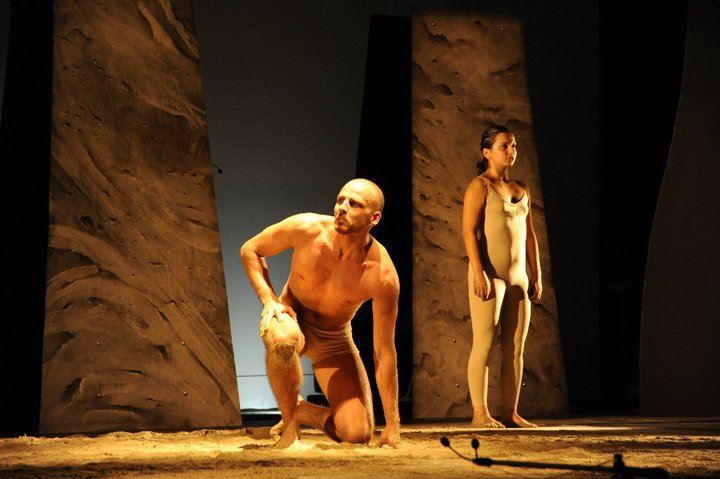

Recently, renowned Italian
composer and orchestrator Fabrizio Pigliucci had his original music celebrated
in German playwright Heiner Müller’s theatrical production of
L’Orazio,
which was staged in an open Roman villa at
L’Orazzio is
set in ancient
Fabrizio Pigliucci says that
“there is a parallel between this story and the truth of our day. We cannot have
the real truth without having all of the facts from both sides and today in
As for his music which was featured in L’Orazio, Mr.
Pigliucci says, “The music is a union between ethnic sounds (such as), flutes,
guitars, percussion, and classical orchestral instruments like piano, violin and
cello. There are also sampled orchestra (selections) and electronic sounds. The
director requested some themes (consistent) with the story and then he let me
make the rest of the choices about the music.”
As one gets to know Fabrizio Pigliucci you realize that
he is a gracious man and a creative genius, although you will never hear him
ever suggesting to you that his music is great, yet so many of the people with
whom we come in contact and who are themselves, very accomplished musicians,
singers, composers and producers use words like, beautiful, pretty, wonderful
and breathless to describe his music and the effect that it has upon them. Mr.
Pigliucci’s spirit is reflected in his involvement with a not for profit
organization which works with terminally ill children and for which he wrote
“Message Of Hope.”
I wrote “Message Of Hope,” for a friend, Gianluca
Galotta, who each year organizes a wonderful charity named
Il Cuore Oltre
(The
Heart Is Over) in
You
do not have to talk to Fabrizio Pigliucci for very long, before you become aware
of just how passionately he feels about music and about people. “The best way
for me to (create) my music is to be filled with emotions, so I can feel totally
a part of the music, then I can enjoy the moment and the magic appears!
This can happen when I am writing an original
composition or when I am working for others as a composer or an arranger. If an
author (of a song) or a director gives me a (composition), I will feel inspired
and I will work my best. Emotions are the most important food for an artist, so
I try to remain open in both work and in life. It is strength and it is a
weakness,” says Mr. Pigliucci.
Fabrizio
Pigilucci has scored more than seventy films, has written themes for television
and he has worked with some of
Mr. Pigliucci also attributes his love for a diversity of music and a wide array
of instruments, to his involvement with the filmmaking process and although he
does not appear to have a favourite instrument, he has an appreciation for what
he describes as, “their profuse vibrations and emotions,” and the moods that
they create. He also has over the years acquired through his own travels and
through gifts from friends, a variety of instruments, which he has learned how
to play and these include; a udu, djembe, darubka, daf, tin whistle, pipe,
shakuachi, nay and duduk. His most recent acquisition is a futujara a two meter
long woodwind instrument given to him, by his friend, singer-songwriter
“The expressive power of an orchestra is enormous,
and it can drive you to the past, it can be in the present, or it can be used to
paint music for the future.
A great number of the best science fiction
films have an orchestral sound. I really like to write for orchestras,
especially for strings, so when I can, I use orchestras for my compositions and
arrangements, as well as for Pop music,” says Mr. Pigliucci.